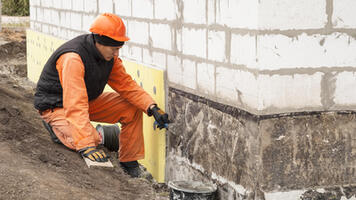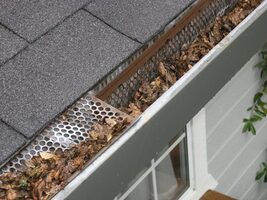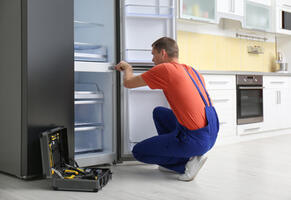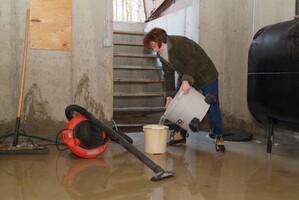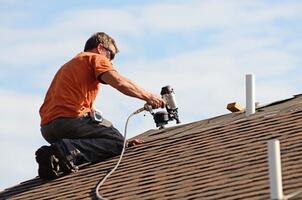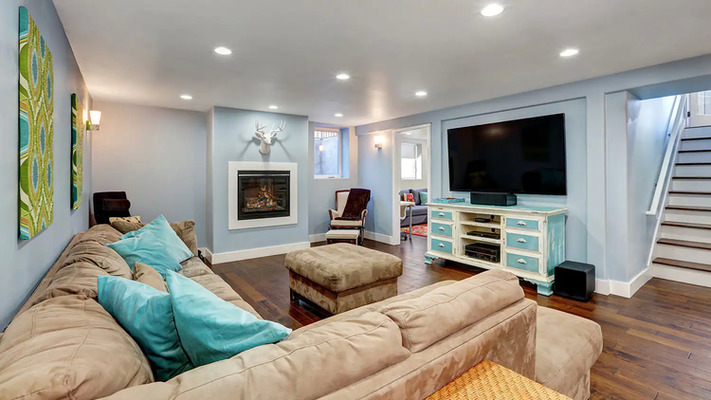
5 Basement Waterproofing Tips That will protect Your home from Damage
Water damage can be a serious threat to your home's structure and value, especially if you have a basement. Fortunately, there are some effective ways to waterproof your basement and prevent costly repairs in the future. Here are five basement waterproofing methods that you can use to protect your home from damage.
1. Interior sealants. Applying a waterproof coating or sealant to the interior walls and floor of your basement can help prevent water seepage and moisture buildup. You can choose from different types of sealants, such as acrylic, epoxy, or polyurethane, depending on your budget and preference. Interior sealants are easy to apply and can last for several years, but they are not a permanent solution and may need to be reapplied periodically.
2. Exterior waterproofing. This method involves excavating the soil around your basement and installing a waterproof membrane or coating on the exterior walls. This creates a barrier that prevents water from penetrating the foundation and reaching the basement. Exterior waterproofing is more expensive and labor-intensive than interior sealants, but it offers a more durable and long-lasting protection.
3. Drainage systems. Another way to waterproof your basement is to install a drainage system that collects and redirects water away from your foundation. This can be done by installing perforated pipes, gravel, or drainage tiles along the perimeter of your basement or under the floor. The water is then channeled to a sump pump, which pumps it out of the basement and away from your home. Drainage systems can be combined with interior or exterior waterproofing for optimal results.
4. Dehumidifiers. If you have high humidity levels in your basement, you may want to invest in a dehumidifier that can reduce the moisture content in the air and prevent mold growth and condensation. Dehumidifiers can also improve the air quality and comfort of your basement, making it more suitable for living or storage purposes. However, dehumidifiers alone cannot prevent water seepage or flooding, so they should be used in conjunction with other waterproofing methods.
5. Foundation repair. Sometimes, the cause of water damage in your basement is a cracked or damaged foundation that allows water to enter through gaps or fissures. In this case, you may need to hire a professional contractor to repair your foundation and seal any cracks or holes. Foundation repair can be costly and disruptive, but it can also prevent further damage and structural issues in your home.
Which Basement Waterproofing Method Should You Choose?
The best basement waterproofing method for your home depends on several factors, such as the source and extent of water intrusion, the condition and type of your foundation, the size and layout of your basement, and your budget and preferences. You may need to combine different methods to achieve optimal results. To determine the best basement waterproofing method for your home, you should consult a professional contractor who can assess your situation and recommend the most suitable solution.
What 5 reasons Causes Moisture in the Basement?
Moisture in the basement can be a serious problem for homeowners, as it can lead to mold growth, structural damage, health issues, and unpleasant odors. But what causes moisture in the basement? Here are five common reasons and how to prevent them.
1. Poor drainage. If the soil around your foundation is not graded properly, water can accumulate near the walls and seep into the basement through cracks or gaps. To improve drainage, you should slope the soil away from the foundation, install gutters and downspouts, and extend them away from the house. You can also use a French drain or a sump pump to divert water away from the basement.
2. High humidity. The basement is often the most humid area of the house, especially in summer, when warm air condenses on the cooler surfaces. To reduce humidity, you should ventilate the basement regularly, use a dehumidifier, and seal any leaks or openings that allow moist air to enter. You should also avoid storing wet or damp items in the basement, such as clothes, carpets, or furniture.
3. Plumbing leaks. Any leaky pipes, faucets, or appliances in or near the basement can cause moisture problems. To detect plumbing leaks, you should inspect your pipes regularly for signs of corrosion, damage, or dripping. You should also check your water meter for any unusual changes in usage. If you find a leak, you should fix it as soon as possible or hire a professional plumber to do it for you.
4. Condensation. Condensation occurs when warm air comes into contact with a cold surface, such as a metal pipe, a concrete wall, or a window. Condensation can create moisture droplets that can damage the surface or drip onto the floor. To prevent condensation, you should insulate any exposed pipes, walls, or windows in the basement. You should also use a vapor barrier to cover any unfinished walls or floors.
5. Groundwater intrusion. Groundwater intrusion happens when water from the soil rises above the level of the basement floor and enters through cracks or holes. This can be caused by heavy rainfall, melting snow, or a high water table. To prevent groundwater intrusion, you should seal any cracks or holes in the basement floor or walls with hydraulic cement or epoxy. You can also install a drainage system under the floor to collect and remove excess water.
